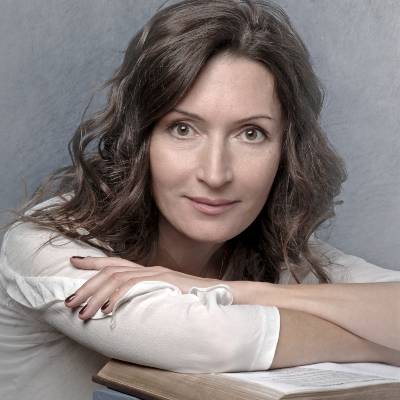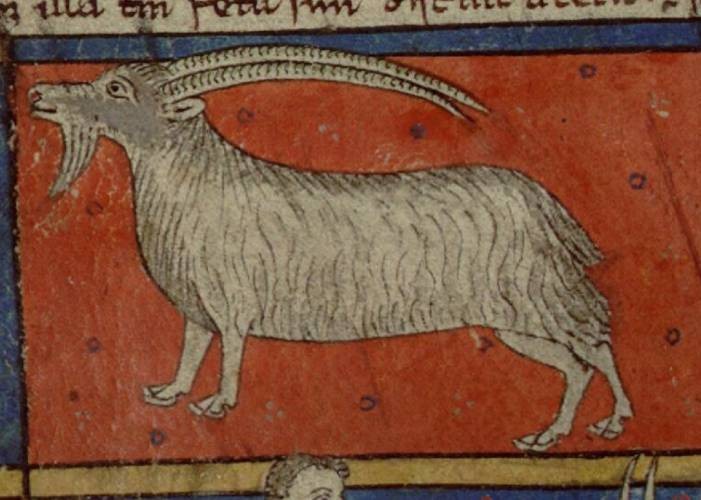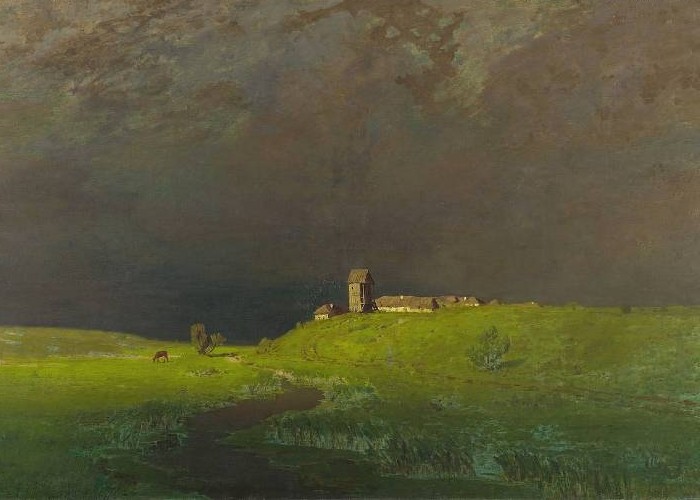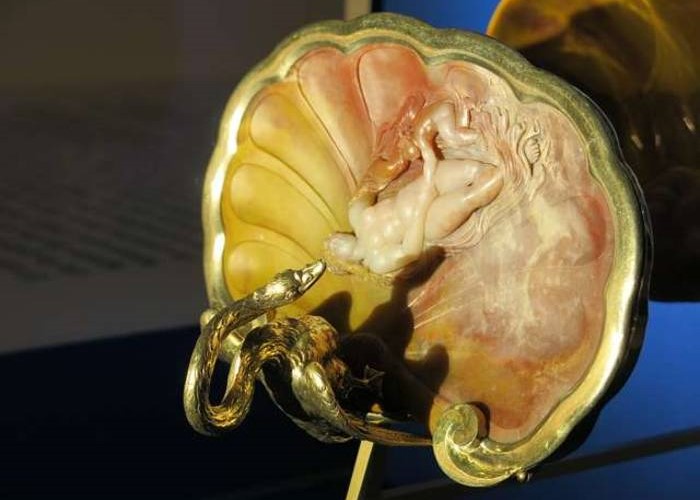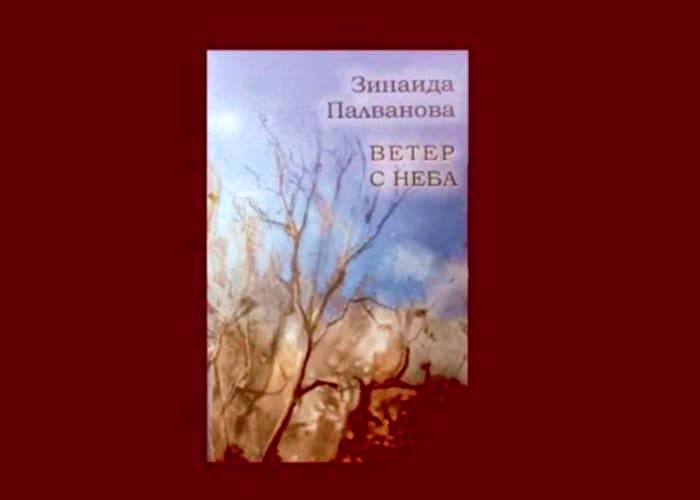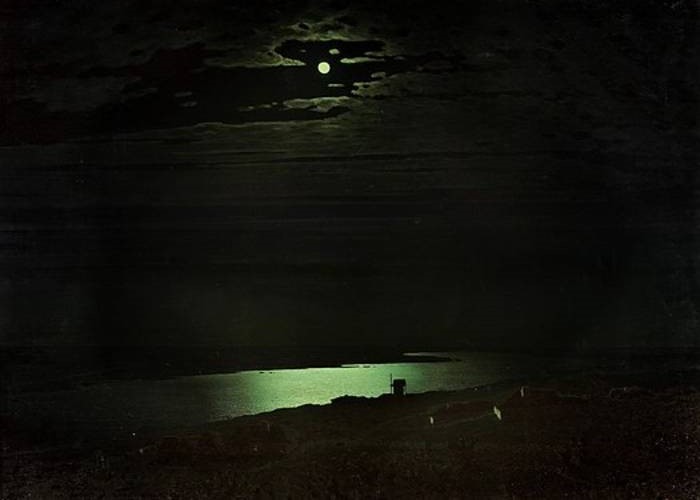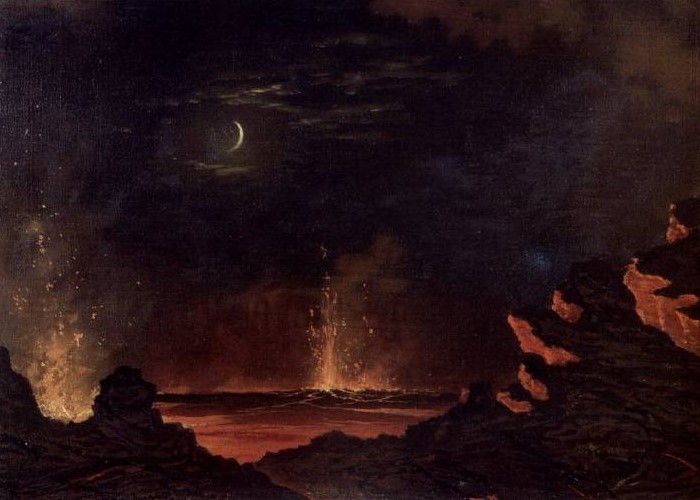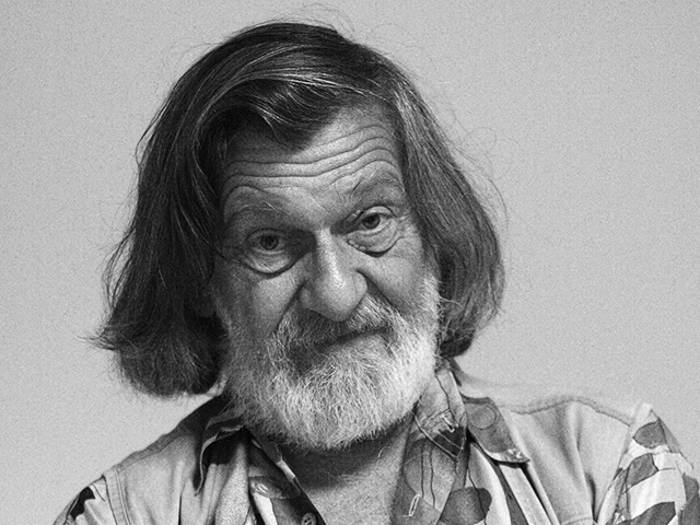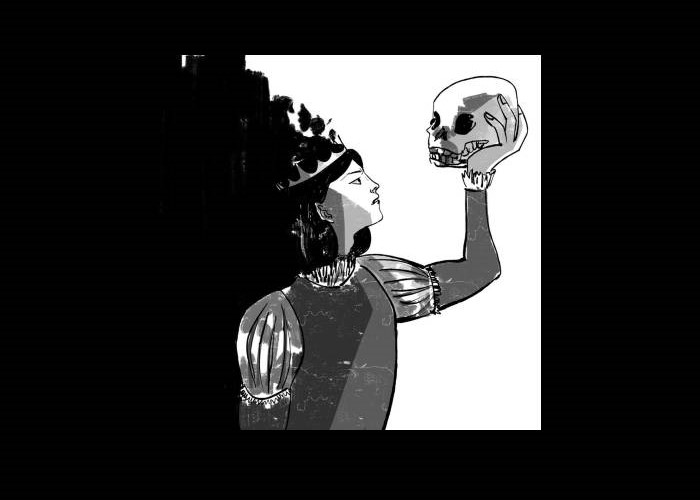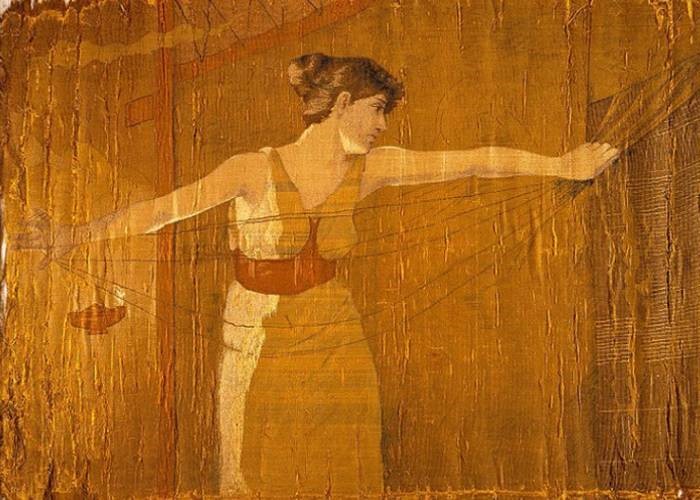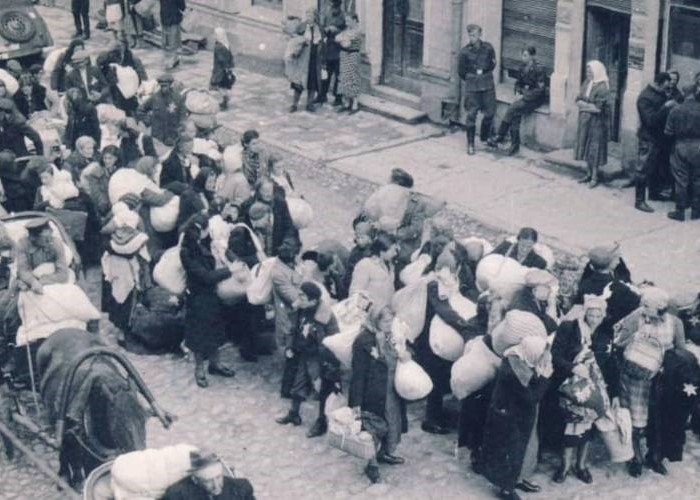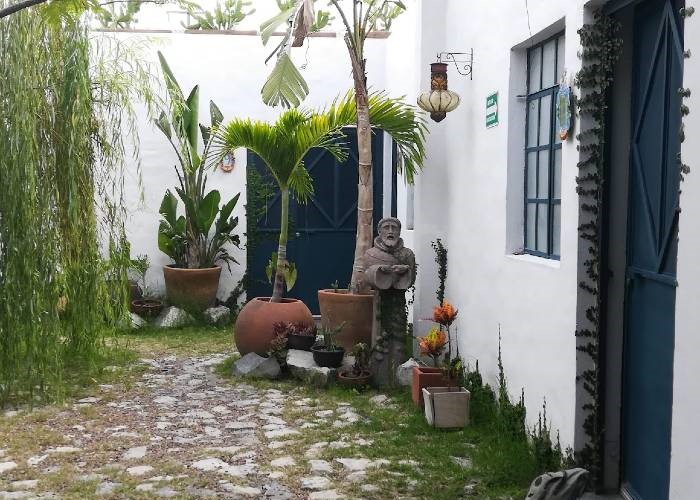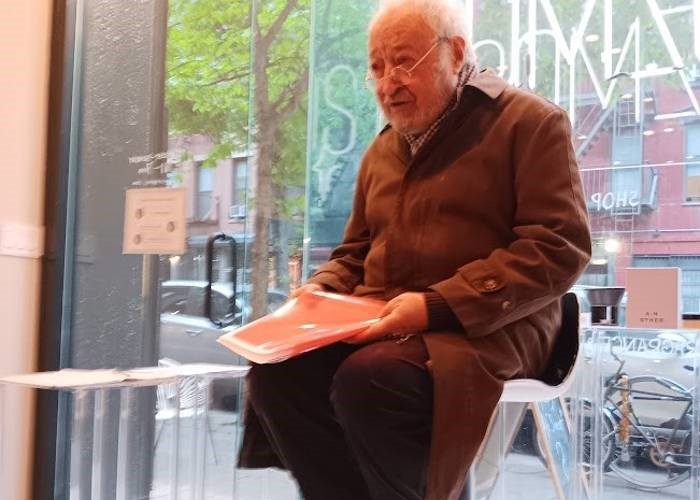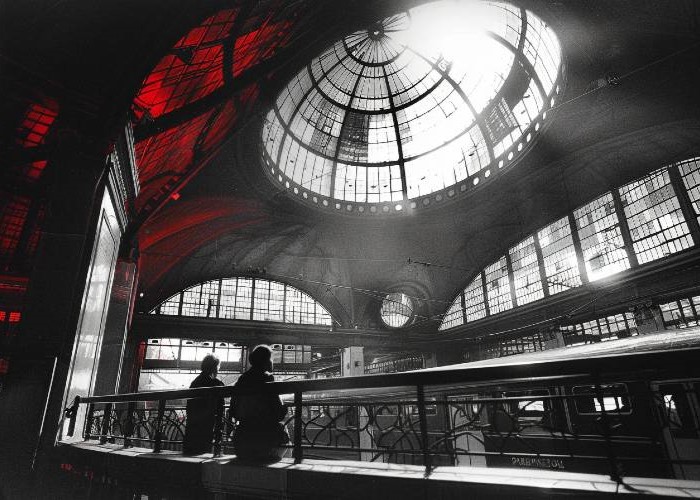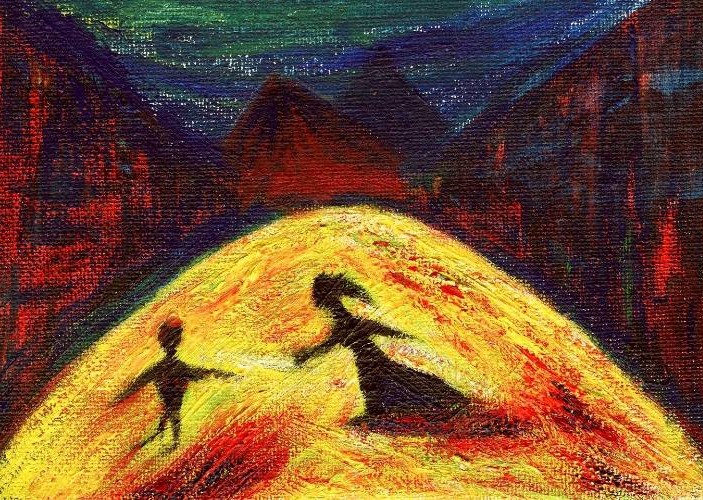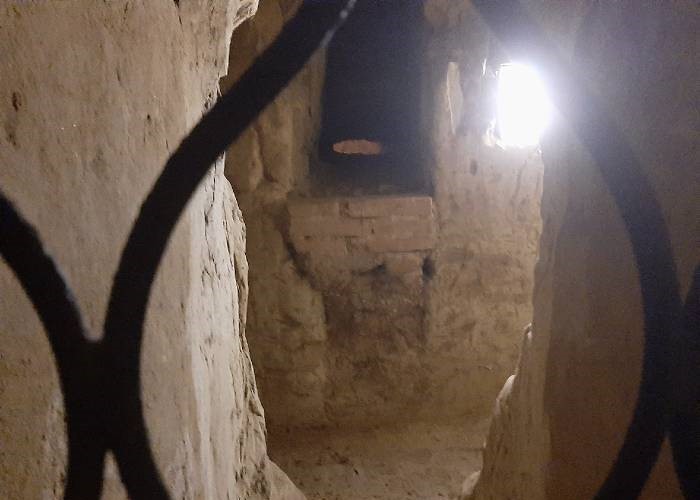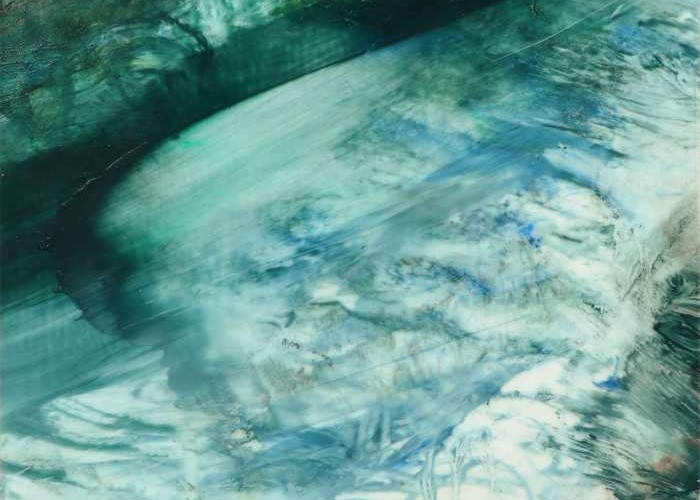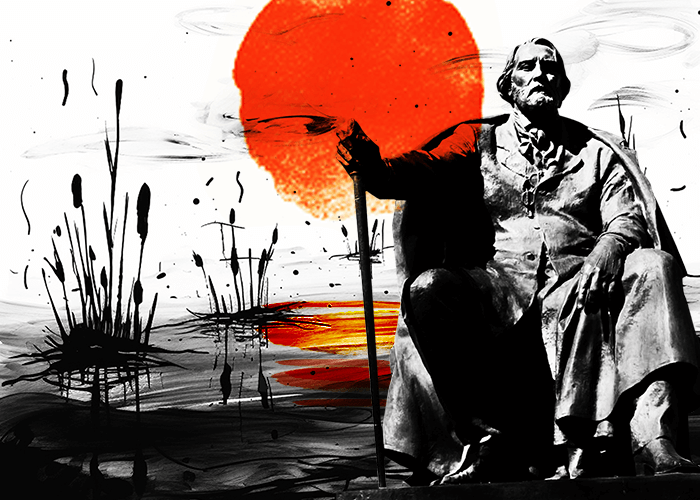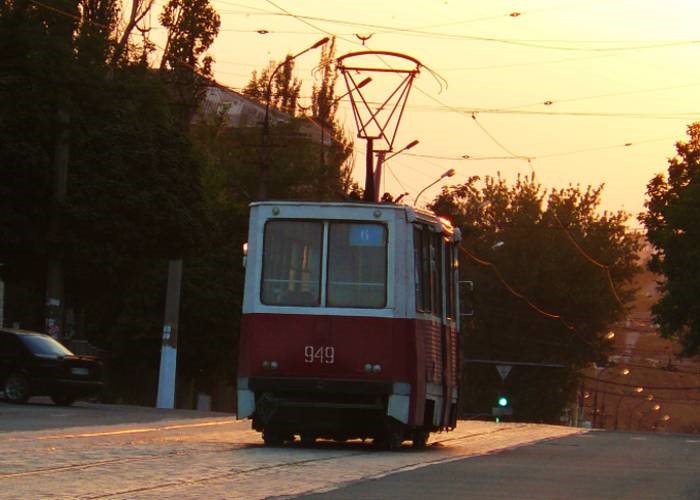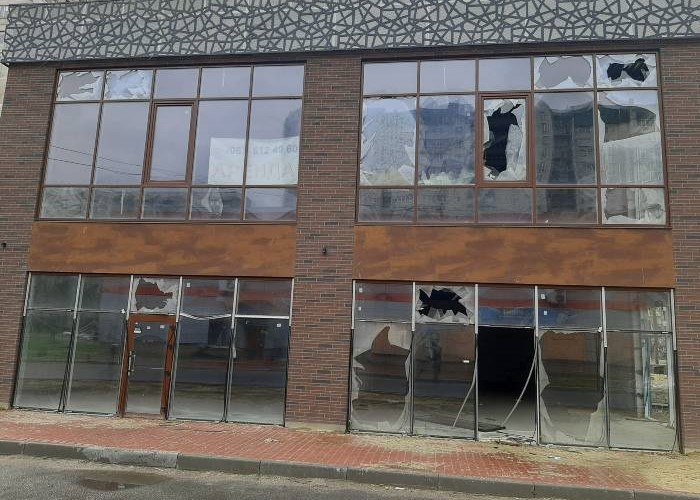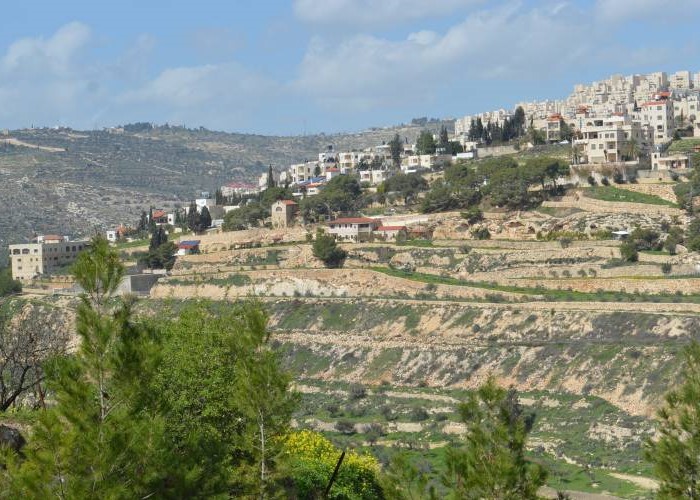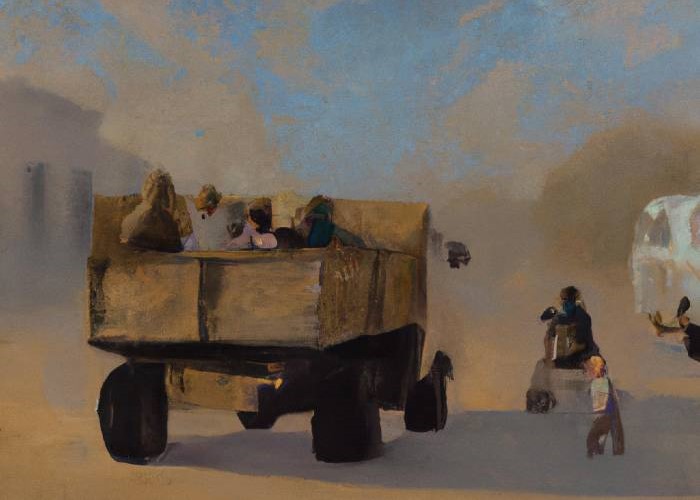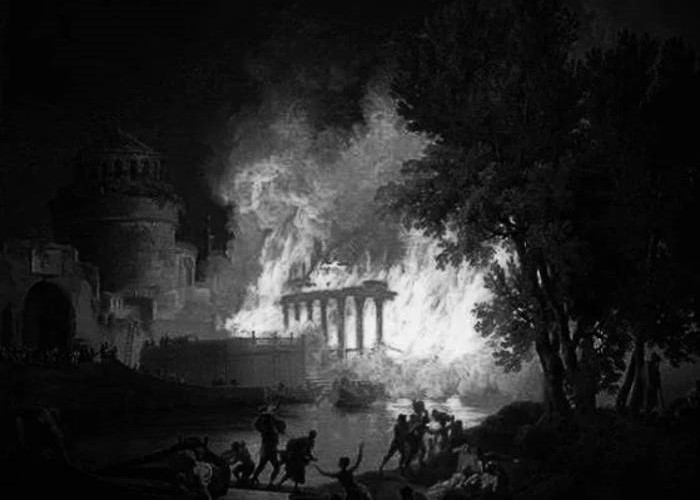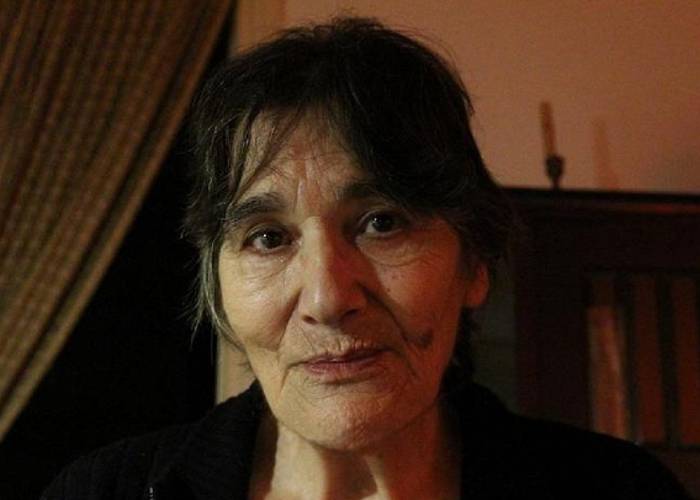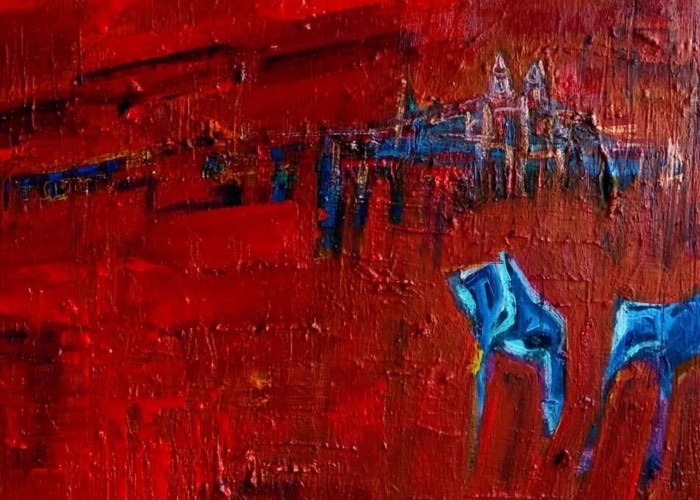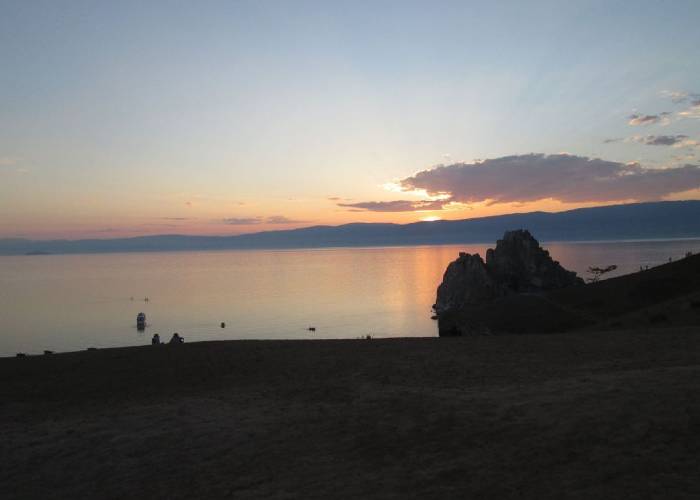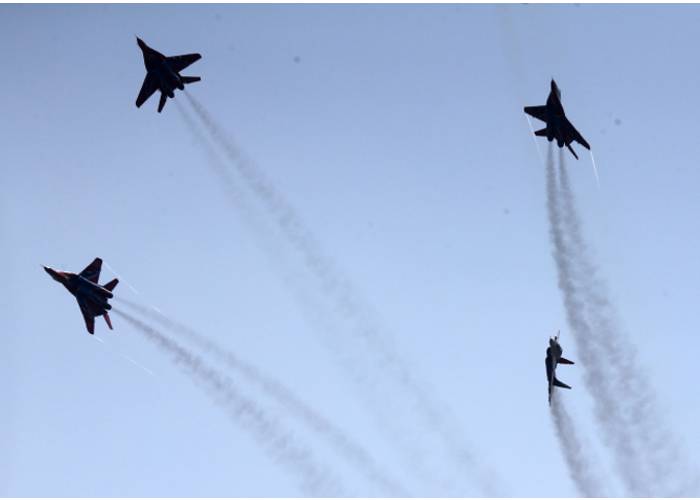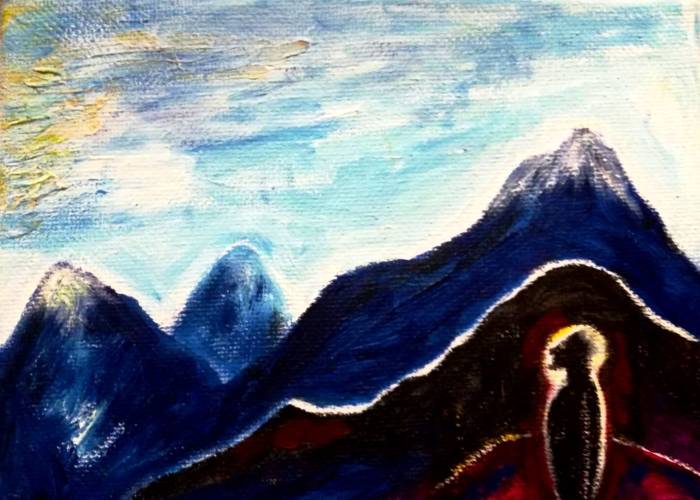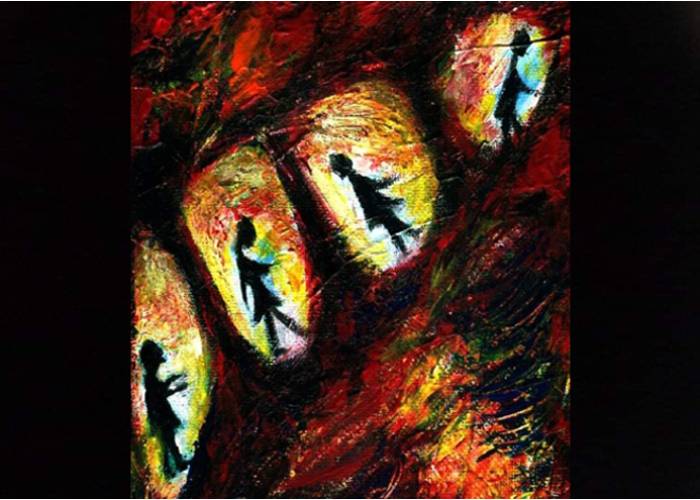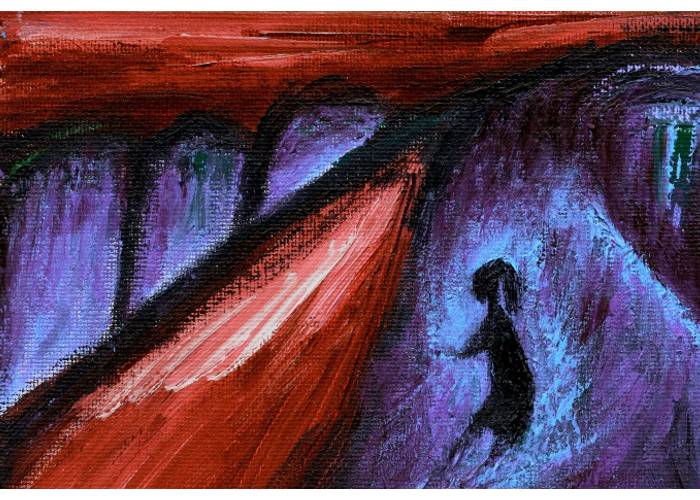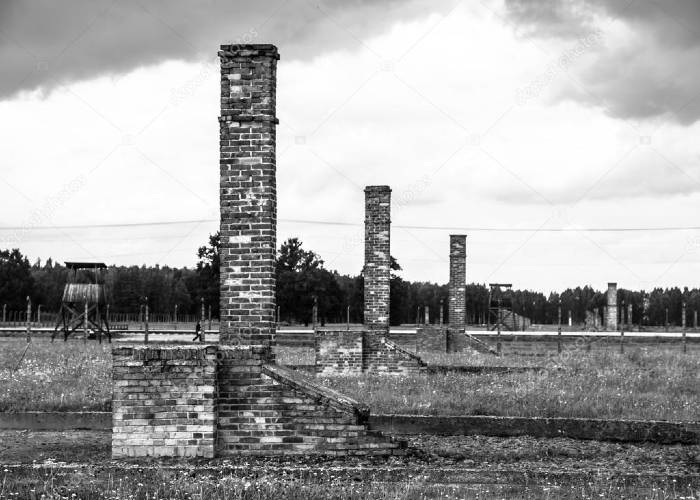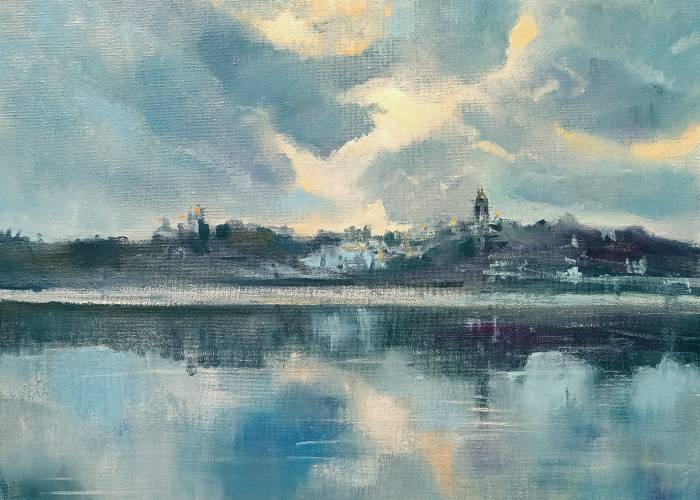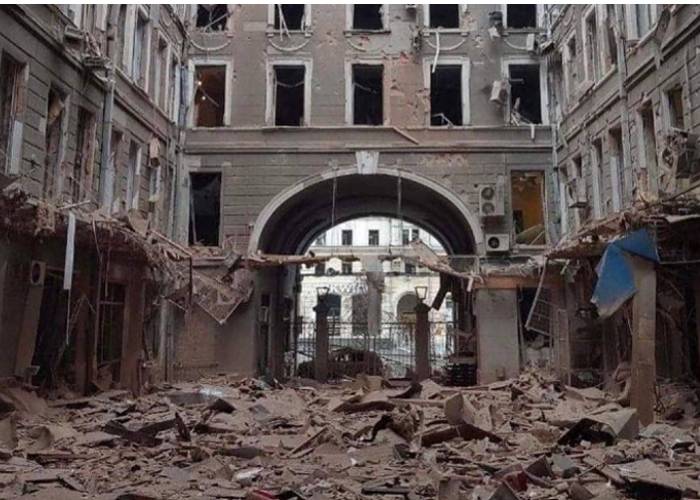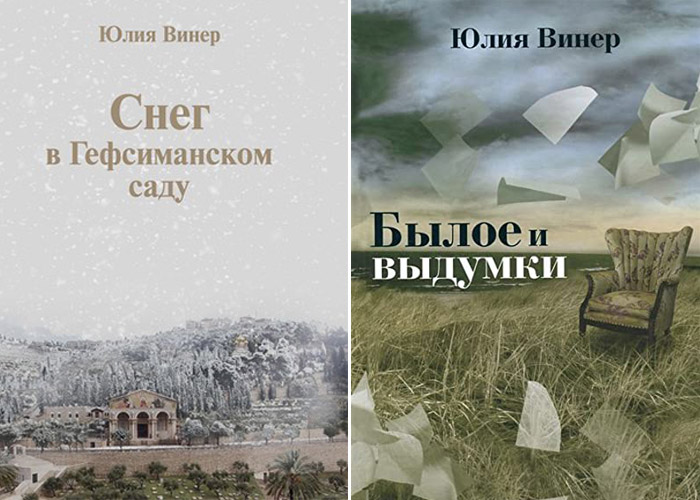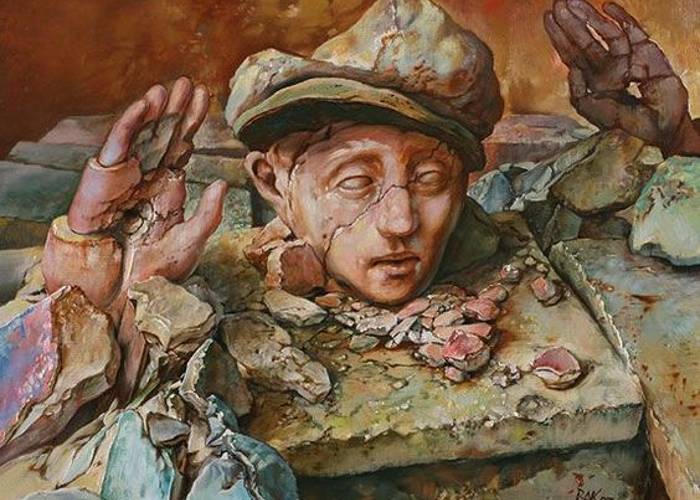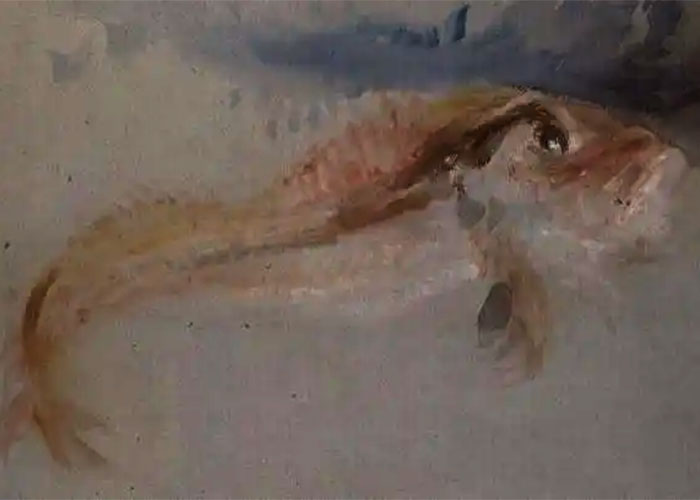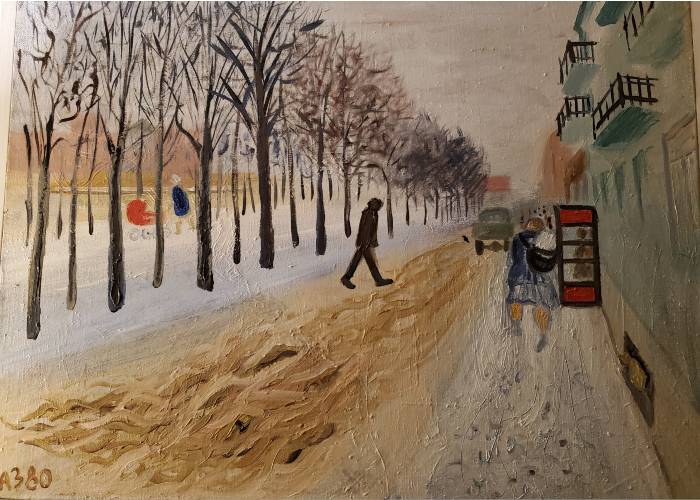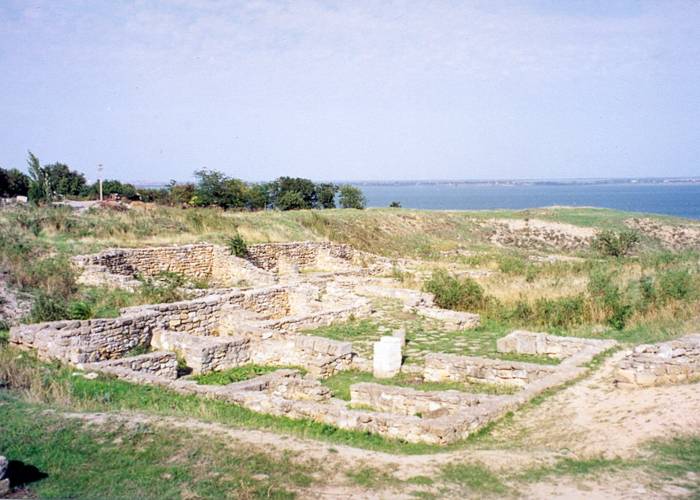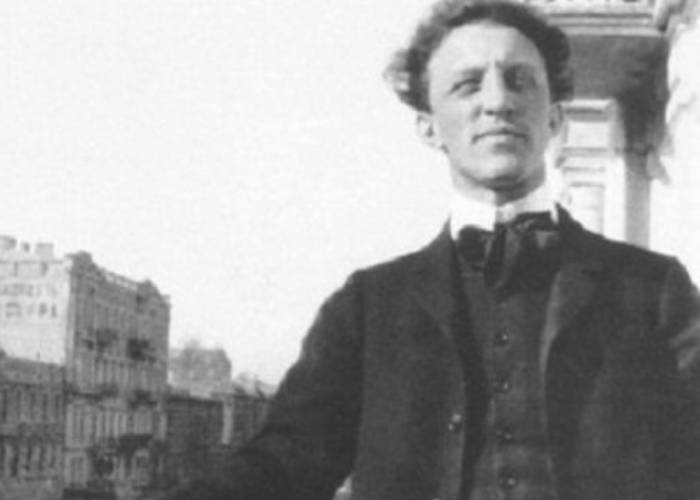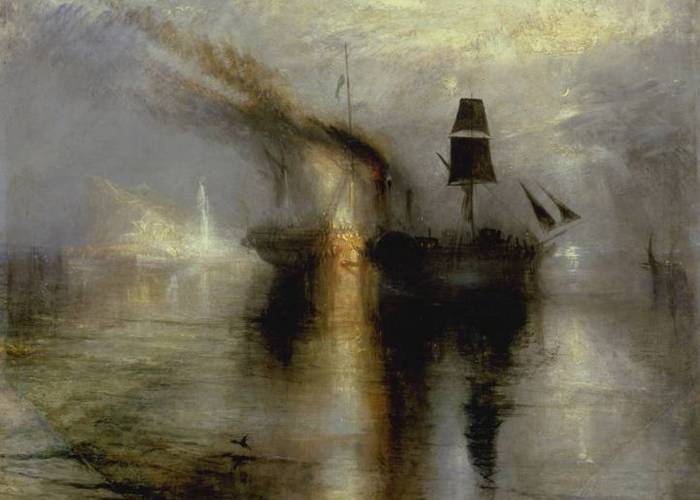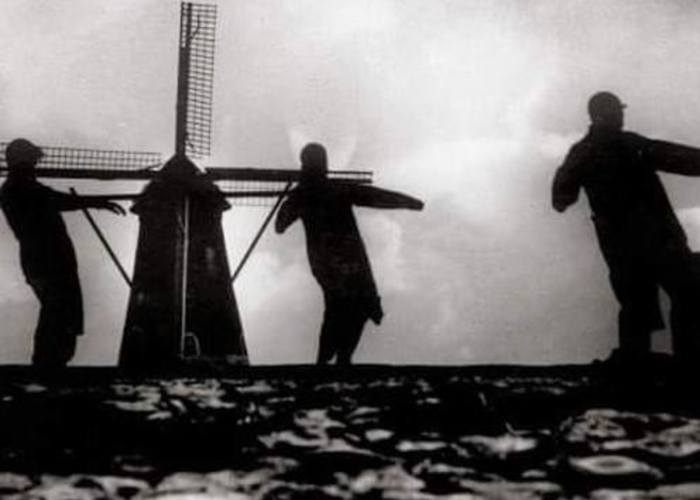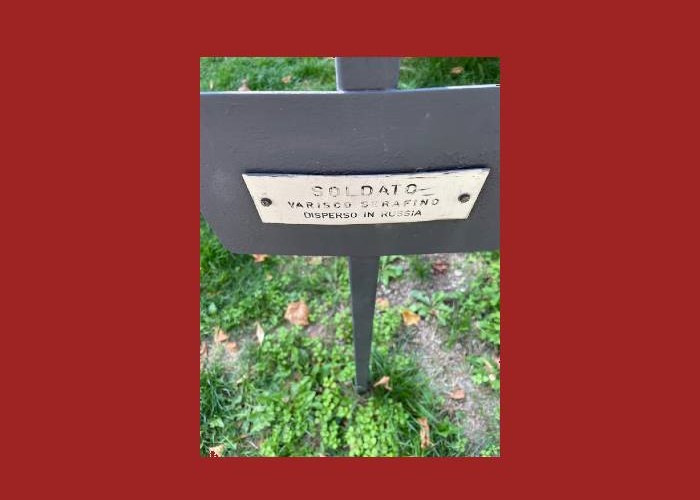“… not of the current age”
—Anna Akhmatova
It was a town I hadn’t seen before.
In it, I found an inconspicuous corner
above a lake. A dozen worn-out steps,
cracked and moss-grown, descended to the shore,
so there we were:
the lake, myself, and some
seagulls that had fulfilled their daily quota
of squalling and were oddly serene.
I’d come there three insomnias in a row,
tracing the steps’ alignment in the dark –
to watch the stars, pulsating and alive,
unmarred by the drab light of human dwellings.
And then a downpour sang its lullaby
for three long days – or was it months? –
I’ve always
had difficulty comprehending time.
Although, not always:
in a previous life
the calendar was regular as clockwork,
and time obeyed that structural arrangement
and was rectangular.
I’m glad it’s over,
and time can flow with ease,
the way it wants,
and even freeze, if so it chooses.
So then, three days (was it three years?) later
I took a walk
back to those narrow stairs
and, on arrival, failed to recognize
the scene around me.
Everything looked different.
The place was flooded with a silver light
that had a festive quality about it.
Was that, indeed, the place?
Perhaps the street lamps
intruded here as well, in man’s crusade
to leave no pristine corner undisturbed?
I took the glistening steps – I almost ran,
not caring if I missed my footing,
down to the water – faster, faster,
and hit a silver wall
and for an instant
was blinded.
The harvest moon!
Who knew
this godforsaken town
was harboring such treasures!
Wait a second,
why am I saying “godforsaken”?
Doesn’t
this very moment prove His omnipresence?
So here I am, for real, face to Face,
awestruck, arms down,
immersed in light, half-lost –
still in this world, already in the next –
and words and lines not of the current age
are flowing through me.
The preceding century
unfolded behind schedule, ignoring
the calendar. It waited for a milestone,
and soon the milestone came: 1914.
How strange that lines that are so antebellum
contain within the knowledge of two wars.
How sad that even in a tiny village
you’ll find an obelisk with a dozen names
of residents who had been killed in action,
gone missing, or died later from their wounds.
Once, in the mountains, by a tiny chapel,
I came across a solitary plaque.
It was succinct. It had six words that said:
SOLDATO
VARISCO SERAFINO
MISSING IN RUSSIA
No face, nor date, nor, as it were, a hint
of who paid tribute to this man, or when
and why it happened at this height.
Perhaps
he was the father of a local family,
whose grand-kids could still be among the living,
and even once went on a trip to Moscow.
Behold the snapshots: there, Fioravanti!,
excitement in the eyes, fur hats, the frost –
those Russian winters, they are so exotic!
He could have been a quiet, beardless lad,
the only son of a protective mother
who would outlive her child by forty years –
folks here live long. She waited all this time
for his return, four decades and four years,
until the Iron Curtain tumbled down –
alas, there was no trace of him behind it.
The Russian winters are indeed exotic.
So here I am, an accidental conduit
for centuries and epochs that converge
and flow through me.
What is this place, if not
a portal for the souls that crave remembrance?
For in the moonlit silence, I can feel
the presence of all those dissolved in nature
ahead of their time…
Who could have thought,
that a nocturnal walk would lead this far?
The flow is getting stronger now, and soon
the piazza with the obelisk, the oval
obsidian mirror of the lake, the moon –
so giant and so bright – will draw me in.
We will dissolve together, one by one,
and somewhere a war will not begin,
or will be over.
November 2022, Lake Como
